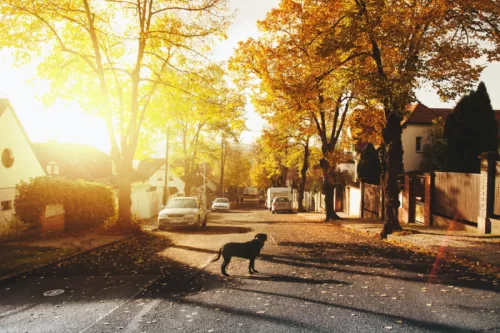As the coronavirus lockdown was imposed, I returned home to Northern Ireland from my temporary residence in Scotland to continue working and studying remotely. I was blessed to have the freedom to do that, and I did so to be with family during what has become a historic season in human history.
Over the past five years my time has been split between Scotland and Northern Ireland, and this travelling back and forth combined with the coronavirus crisis has given me much food for thought about what a blessing local community is in our lives.
Many of us, and within my generation especially, spend much time thinking globally in our, indeed, increasingly globalised world. In so many ways this is a fantastic — we pray for and take part in world mission to fulfil the great commission and become ever-more conscious of how our individual consumption choices harm people in other parts of the world.
But if we are only ever thinking about the people and places around the world and not those where we are right now, for the sake of our witness in our communities we’d do well to rebalance our priorities. The pandemic has brought the unexpected benefit of an enforced refocus on the local – those immediately around us, in our own communities.
One of my favourite verses in the Bible is at the beginning of Acts, when Jesus is speaking to His apostles as He was ascending back into Heaven. There is an incredible depth of wisdom in such few words: “But you will receive power when the Holy Spirit comes on you; and you will be my witnesses in Jerusalem, and in Judea and Samaria, and to the ends of the earth.” (Acts 1:8, NIV, emphasis mine)
Jesus teaches the apostles to fulfil the great commission in concentric circles — start in Jerusalem (the local), then Judea and Samaria (the national), before heading to the ends of the earth (the global). Jesus shows how the church has a role to play at all three levels.
It could be that the pandemic provides the opportunity to recalibrate our missional priorities, to ensure that we are fulfilling each part of the instruction in tandem. We can support the global missionaries in our church, practically during these difficult times. We can look across the church in the UK and lift up those who are struggling in prayer. And in our local context, we can do both — become involved in our community in new ways, reflecting the love Jesus had for outsiders and the most vulnerable.
We have the responsibility to look after our own families first. But if we have been medically safe and economically secure during the pandemic, there is much scope to extend our reflection of Jesus’ love within our local community. This can range from simply following the lockdown rules the Government has set out to prevent the spread virus, having encouraging conversations at a physical difference over the hedge or behind the window, and making sure that those who can’t leave their home are having food and prescriptions delivered. Those relationships will last long after the pandemic has passed. This should come naturally to us as we read the Bible and see how Jesus loved those around Him.
Let’s take the opportunity that the coronavirus provides to become more outward-looking to those around us by being more inward-looking of the needs of our family and community around us. As Jesus’ said, “You will be my witnesses in Jerusalem, and in Judea and Samaria, and to the ends of the earth.”
Photo by Daniel Frank
"Let’s take the opportunity that the coronavirus provides to become more outward-looking to those around us by being more inward-looking of the needs of our family and community around us."



